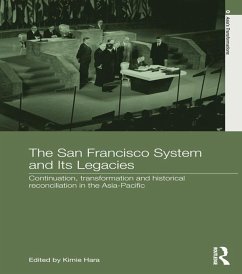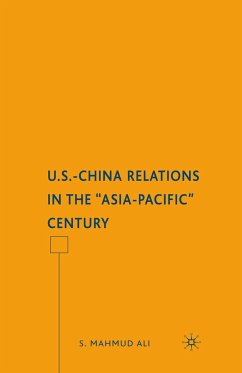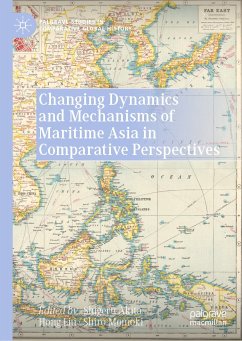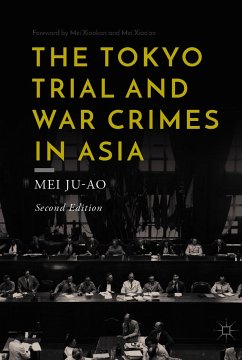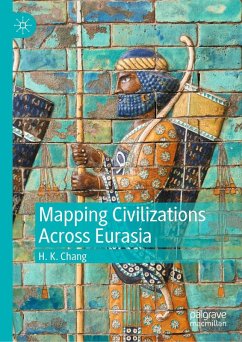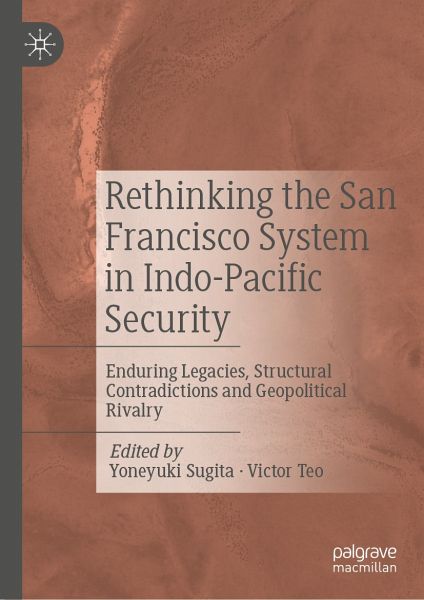
Rethinking the San Francisco System in Indo-Pacific Security (eBook, PDF)
Enduring Legacies, Structural Contradictions and Geopolitical Rivalry
Redaktion: Sugita, Yoneyuki; Teo, Victor
Versandkostenfrei!
Sofort per Download lieferbar
96,95 €
inkl. MwSt.
Weitere Ausgaben:

PAYBACK Punkte
48 °P sammeln!
This remarkable collection commemorates the 70th anniversary of the 1951 San Francisco Peace Conference by revisiting the important legacies of both the Peace Treaty and the US-Japan Security Treaty have had on the peace and stability of the Asia-Pacific. Drawing on multiple perspectives, the volume conveys the hopes and fears that the authors have for the domestic and international politics of the region. In a post Trumpian world marked by the US-China tensions amidst a raging pandemic, the region's continued prosperity looks exceedingly grim. Would the arrangements made in 1951 continue to h...
This remarkable collection commemorates the 70th anniversary of the 1951 San Francisco Peace Conference by revisiting the important legacies of both the Peace Treaty and the US-Japan Security Treaty have had on the peace and stability of the Asia-Pacific. Drawing on multiple perspectives, the volume conveys the hopes and fears that the authors have for the domestic and international politics of the region. In a post Trumpian world marked by the US-China tensions amidst a raging pandemic, the region's continued prosperity looks exceedingly grim. Would the arrangements made in 1951 continue to have relevance for an Indo-Pacific region beset by great power rivalry and potential conflict fuelled by contending nationalisms, clashing interests and territorial disputes? Through a rigorous debate based on the latest empirical developments, the volume explores various ways where by the spirit and legacies of San Francisco arrangements can be meaningfully preserved and enhanced. In order for the region stronger and more prosperous in the post-pandemic world, the countries have to come together to enhance the existing security architecture to contain great power rivalry and ensure that a regional order capable of addressing problems of the 21st century eventually evolves.
Dieser Download kann aus rechtlichen Gründen nur mit Rechnungsadresse in A, B, BG, CY, CZ, D, DK, EW, E, FIN, F, GR, HR, H, IRL, I, LT, L, LR, M, NL, PL, P, R, S, SLO, SK ausgeliefert werden.




